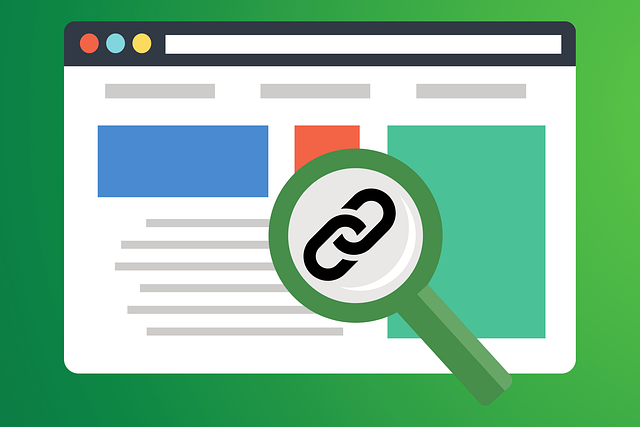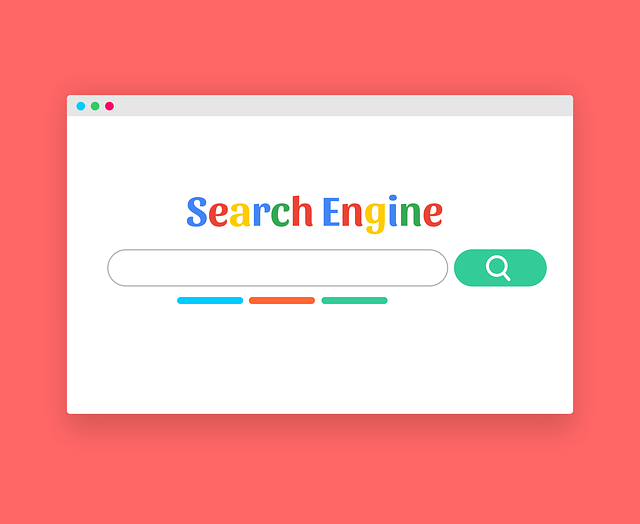An SEO site audit is a comprehensive evaluation process that analyzes a website's performance and health from an optimization perspective, identifying strengths, weaknesses, opportunities, and threats in the current SEO strategy. This methodical analysis covers technical SEO, content optimization, keyword strategy, link profiles, and user experience, ensuring search engine rankings, driving organic traffic, and boosting online visibility. Practical SEO Workshops leverage tools like Google Search Console, Bing Webmaster Tools, Ahrefs, and SEMrush to identify areas for optimization, focusing on on-page optimization (structure, content, structured data), keyword performance, backlink profiles, and user experience (accessibility, mobile optimization, speed). These workshops empower professionals to implement changes, track improvements, and refine SEO strategies over time.
Discover the power of a SEO site audit—a hands-on, strategic process vital for any digital marketing strategy. This comprehensive guide takes you through practical workshops on optimizing your website’s health. From understanding the core purpose and essential tools to delving into on-page optimization, keyword analysis, backlink profiles, UX evaluation, mobile responsiveness, speed testing, and post-audit strategies—each step ensures your site shines in search engine rankings. Elevate your SEO knowledge with these practical workshops today.
Understanding the Purpose of an SEO Site Audit

An SEO site audit is a crucial process that involves thoroughly evaluating a website’s performance and health from an optimization perspective. It serves as a comprehensive guide to identifying strengths, weaknesses, opportunities, and threats in a site’s current SEO strategy. This hands-on approach is essential for businesses aiming to excel in the digital realm, especially through practical SEO workshops. By delving into the audit process, website owners and marketers can uncover actionable insights that enhance search engine rankings, drive organic traffic, and ultimately boost online visibility.
This methodical analysis covers various aspects, including technical SEO, content optimization, keyword strategy, link profiles, and user experience. It helps in understanding how search engines crawl and index the site, ensuring no technical barriers hinder progress. Moreover, it allows experts to assess the relevance and quality of on-page content, meta tags, headings, and internal linking structures. An SEO site audit is a powerful tool that enables businesses to make data-driven decisions, stay ahead of algorithms, and continuously refine their online presence, thus outperforming competitors in practical SEO workshops.
Essential Tools for Conducting a Comprehensive Audit

Conducting a comprehensive site audit is an integral part of any successful SEO strategy, and the right tools can make all the difference. For a practical SEO workshop, professionals should familiarize themselves with industry-standard audit tools that offer a holistic view of a website’s performance. These include platform-specific analyzers like Google Search Console and Bing Webmaster Tools, which provide insights into crawl errors, indexing issues, and site performance directly from search engines.
Additionally, off-page analysis tools such as Ahrefs and SEMrush are invaluable for understanding backlinks, competitor strategies, and keyword rankings. These platforms offer detailed reports on domain authority, backlink profiles, and content performance, enabling SEO experts to identify areas of improvement and develop targeted optimization strategies during their hands-on workshops.
On-Page Optimization: A Deep Dive into Technical and Content Aspects

On-Page Optimization is a critical component of any successful SEO strategy, and it involves a deep dive into both technical and content aspects. In terms of technical optimization, Practical SEO Workshops focus on ensuring your website’s structure is user-friendly, with clean HTML code, proper heading hierarchy, and optimized URL structures. These elements help search engines understand your page’s context and improve crawlability. Additionally, implementing structured data markup can provide rich snippets in search results, enhancing visibility and click-through rates.
Content optimization goes beyond keyword stuffing. It involves creating high-quality, relevant content that satisfies user intent. Workshops cover best practices like optimizing meta titles and descriptions, using target keywords naturally throughout the content, and incorporating internal links strategically to improve site architecture. Remember, engaging and valuable content not only attracts but also retains visitors, leading to lower bounce rates and longer time spent on page—all factors that search engines consider when ranking sites.
Analyzing Keyword Performance and Its Impact on Rankings

In the realm of Practical SEO Workshops, one of the core components is analyzing keyword performance. This involves scrutinizing the effectiveness of targeted keywords in driving organic traffic and improving search rankings. By examining keyword metrics such as search volume, click-through rates, and average position, SEO experts can identify high-performing keywords that significantly impact a site’s visibility.
Understanding this relationship is crucial for optimizing content strategies. Through diligent analysis, professionals can uncover valuable insights into user search behavior, competitor keywords, and emerging trends. This knowledge enables them to make data-driven decisions, enhancing the site’s overall SEO performance and keeping it ahead in today’s competitive digital landscape.
Exploring Backlink Profile: Quality over Quantity

When conducting a comprehensive SEO site audit, a crucial aspect to explore is the backlink profile. It’s not just about the number of backlinks but their quality and relevance. Practical SEO workshops often emphasize this point—a few high-quality, authoritative links from reputable sources carry more weight than numerous low-quality or irrelevant ones.
Evaluating the backlink profile involves analyzing where these links are coming from, their anchor text diversity, and the overall authority of the linking sites. This hands-on process helps identify any toxic backlinks that could be negatively impacting your site’s search rankings. By focusing on quality over quantity, you ensure that your site is associated with relevant, trustworthy sources, which is a key factor in search engine algorithms.
User Experience (UX) Evaluation: Enhancing Website Accessibility

In a practical SEO workshop, one critical aspect often overlooked is User Experience (UX) evaluation, particularly when it comes to enhancing website accessibility. A well-optimized site should be user-friendly and accessible to all, regardless of their abilities or the devices they use. By ensuring your website adheres to Web Content Accessibility Guidelines (WCAG), you improve its overall usability and search engine rankings. This includes implementing simple yet effective changes such as using descriptive alt text for images, providing clear navigation paths, and guaranteeing compatibility with assistive technologies like screen readers.
Focusing on UX not only benefits visitors with disabilities but also improves the site’s performance for all users. Practical SEO workshops can guide website owners through this process, offering hands-on strategies to make their sites more inclusive. These practices include A/B testing user interactions, analyzing heatmaps to understand navigation patterns, and incorporating feedback from diverse user groups. By integrating accessibility into your SEO strategy, you create a better online experience for everyone, fostering higher engagement and stronger search engine rankings.
Mobile Optimization: Ensuring Responsiveness Across Devices

In today’s mobile-first world, ensuring your website is optimized for various devices is a crucial step in any Practical SEO Workshop. Mobile optimization goes beyond simply having a responsive design; it involves testing and refining every element to deliver an exceptional user experience across smartphones, tablets, and even smartwatches. This includes optimizing page load times, ensuring touch-friendly interfaces, and verifying that all content and features are accessible without the need for cumbersome zooming or horizontal scrolling.
By implementing these adjustments, websites can achieve higher search rankings and reduce bounce rates, as Google prioritizes mobile-friendly sites in its search results. A well-optimized mobile experience not only satisfies users but also serves as a cornerstone for successful SEO strategies, setting your website up for long-term success in the competitive digital landscape.
Speed and Performance Testing: Optimizing for Faster Load Times

In the realm of practical SEO workshops, a crucial aspect that often goes overlooked is speed and performance testing. This key component plays a pivotal role in enhancing user experience and boosting search engine rankings. By optimizing for faster load times, website owners can ensure their sites not only deliver content swiftly but also maintain a competitive edge in today’s digital landscape.
A hands-on approach to this involves utilizing various tools to gauge site speed and identify bottlenecks. These practical SEO workshops empower professionals to delve into the intricacies of page loading, from analyzing server response times to understanding browser caching and leveraging browser-specific optimizations. Ultimately, this meticulous process leads to a refined website that offers lightning-fast performance, fostering user satisfaction and encouraging longer browsing sessions, all of which are vital indicators for search engines.
Implementing Changes: Post-Audit Strategies for Continuous Improvement

After conducting a comprehensive SEO site audit, the next crucial step is implementing changes and establishing strategies for continuous improvement. This involves reviewing the findings from the audit and prioritizing actionable tasks. Start by addressing critical issues that significantly impact your website’s visibility and user experience, such as broken links, duplicate content, or mobile usability problems. Create a structured plan to rectify these issues, ensuring each change aligns with your broader SEO goals.
Engage in practical SEO workshops to educate your team on the significance of each recommended alteration. These hands-on sessions can foster a deeper understanding of SEO best practices and empower internal stakeholders to actively contribute to future optimization efforts. Regularly monitor website performance post-changes using reliable analytics tools, allowing you to track improvements, identify new opportunities, and continuously refine your SEO strategy.
